
Games aren't just competing with each other for eyeballs and revenue. They're competing with every other activity and product that people could spend their time or money on. And the competition is fierce. I can pay several dollars a month and get access to a few thousand films. I can put down £10 and unlock a library of tens of millions of songs. So, games companies have had to concoct some creative schemes to offer the same value for money. One such scheme is to ply players with heaps of free updates.

Twenty years ago, proposing that a AAA developer give away hours of playable material without directly asking for money in return would have gotten you laughed out of the room. Today, it's the norm for multiplayer colosseums. New characters, modes, mechanics, and locations get handed out like flyers and without an upfront charge. This river of content flows both from the microtransaction models that fund its development and the intangible characteristic of online goods.
There is not the pressure for online events to end or online products to be scrapped that there is for their physical counterparts. A purveyor of internet goods doesn't have to tear down their current stage to build up a new one and has no need to clear out their warehouse to add incoming commodities. Fortnite is an anomaly in blockbuster entertainment software because it does tear down its stages and does clear out its warehouse. Epic Games, its developer, expends no shortage of labour hours and resources to ensure that its updates are regular and transformative. But to "update" a game doesn't exclusively mean to add to it. In fact, there's a tenuous relationship between the language Fortnite uses to describe changes and the changes that language represents.
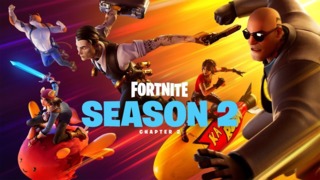
During its lifespan, Epic has split the game into "chapters". We are on "Chapter Two" at the moment, which surged into life in Autumn 2019. And that label of "chapter" makes it sound like Epic is using an episodic model, adding onto what it has written for the game so far and continuing Fortnite's story. And Fortnite does always have a suggestion of a story: the game boots up with a cutscene dramatising world-shattering phenomena like alien invasions and the egomaniacal plans of supervillains. It's also not unusual for it to feature questlines that bring these concepts to life. But in Fortnite, we never control an individualised character with a personality or receive a context for the battles. Who the combatants are and why they're fighting each other are not questions that Fortnite is interested in answering. Fortnite is about how those fights play out.
We can safely say that Fortnite's chapters are not primarily there to add planks to the narrative. Instead, new "chapters" consist of complete overhauls of the map and other broad modifications of the game design. Each chapter is sliced into "seasons", which is also a misleading term. In sports, a season is a closed and structured period of competition. Across it, the performances of teams and players are logged: their wins, losses, points, etc. come together to form a persistent record. New seasons mark the sealing of the previous scorecard and the unsealing of a new one. But not in Fortnite.
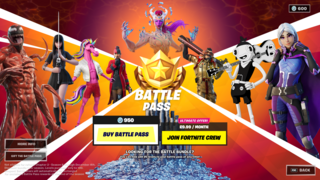
This shooter doesn't care for ranks or meticulously documented stats; it's no cutthroat esport. It's more about having fun in the moment. In Fornite, new seasons come with modifications to the map and new skins and emotes. When a fresh season arrives, Epic also throws out the old battle pass for a new one and switches out the short-term novelties in play: stuff like boats and mechs. Alongside these alterations to the battle royale arena, Fortnite has frequently swapped limited-time game modes in and out.
I know I'm talking semantics in clarifying what Epic means by "chapters" and "seasons". However, we shouldn't think of "semantic" as meaning trivial. The description of game content can lead us, or mislead us, to various conclusions about the piece of media overall. And it's the misleading that I care about. The term "chapters" makes it sound like Epic is expanding the current game content when really, it's replacing it. And the word "seasons" downplays that Epic isn't just wiping away performance records, but assets, mechanics, and the chance to unlock rewards. Remember, you have to pay for each new battle pass, and when last season's pass expires, you lose the chance to keep progressing through it and plumb its goodies.
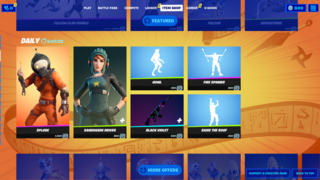
While Fortnite is famed for the torrential stream of new experiences and challenges it unloads onto players, its operation as a live service is as much about removing content as it is adding it. We look out on a field of games that want to blow away users with both the volume and quality of new experiences they add each month. In contrast, Fortnite disposes of areas, goals, and mechanics at the end of a season like a bakery would toss its unsold cakes at the end of the day. Seen from this angle, Fortnite's chapters and seasons might better be described as periods for product rollout than by their current names.
This battle royale is supernaturally successful despite deviating from the model other profitable and popular games in its class employ. And if we cannot explain this marriage of success and deviance, we have a sizeable hole in our understanding of the industry. To expand our cognisance of the medium's practices, we must once again ask the most important question you can ask about a game: "What's up with that?". How does Epic get away with demolishing whole wings of their award-winning video game, and what are the consequences of them running their business like this?
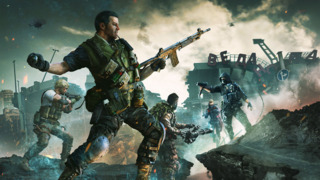
To start, making a profitable or beloved game is not just about getting the maximum potential runtime out of minimal allocated resources. As you can see in Apex Legends or Call of Duty: Warzone, regularly retooling the art and mechanics of your battle royale can ultimately win you more net hours of engagement with your game. It can also better increase the appeal of that game compared to plonking down some base assets and code and letting it languish.
And you can expand your battle royale game without expending the amount of money and time you'd have to to create the equivalent amount of scripted game content. Plus, instead of most players burning through levels that they'll never look back on, they will return to the same map with the same elements time and time again. As customers spend leisure hours in the game, they hopefully become emotionally invested in it. Some portion of those emotional investments will then translate into financial investments. It's more profit over a more sustained period than if you hadn't updated the title. The explosive success of Fortnite is partly due to Epic finding a perfect centreground between introducing the new and sustaining the old.
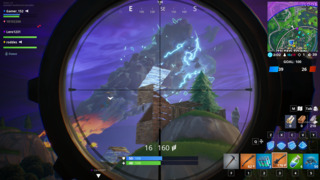
But however lucrative an approach to development is, it doesn't matter if it's not appealing to the player. We've yet to talk about what customers get from seeing pints of their favourite game poured down the drain every 3-4 weeks. Because Fornite's volatile approach to content isn't just tolerated, it's celebrated. There are reasons players get excited about something they love existing only in the short term.
An explanation starts here: If a game is always forcibly moving you onto new experiences, you can't wear the same loops down until they're mundane and stale. You have no choice but to keep playing something original. I suspect the ephemeral nature of Fortnite's locations and features has contributed to its trendiness. With such a rigorous update schedule, the Fortnite you play is always, at most, a few months old. It stays with the times, even in a world where "the times" could change several times a year.
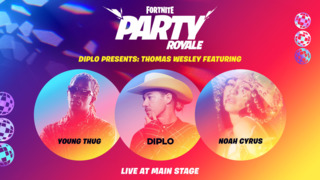
You've no doubt also experienced some live events at some point in your life that were special to you. Maybe you watched a brilliant film in the theatre or went to an unforgettable party. You saw your favourite band live or had your friends around your home for the finale of a prestige TV show. Many people feel that such events are precious not just because of what happened during them but because they only happened once.
Joyous one-time moments also tend to bond people, both within friend groups and across whole communities. Those examples like seeing a live concert or getting together for a TV watch party represent shared experiences, and shared experiences are common ground. They're happy occurrences a social group can collectively reference and which their interactions play off of. For an example of the same thing on a broader scale, notice how cultures organise around holidays. People cherish annual festivals like Halloween and Christmas because they come once a year. The prescribed activities and aesthetics associated with them get entire communities acting and thinking in the same way during those periods, leading to greater social cohesion.

When media allows itself one-off events, it can create that same sense of magic exclusivity and social collectedness. Fortnite famously found the sentimentality in exclusive events when it hosted live concerts from the likes of Travis Scott and Diplo. But these are curiosities off of the A-road. Fortnite's main attraction is its battle royale. Within that mode, the headline act is the anthropogenic and geological change its map exhibits. Between seasons, fields flood and seas dry up. Cities rise and fall. Landmarks form and crumble. Fortnite's world feels alive because it goes through life stages, including the death of the map at the end of a chapter. If Epic did not remove previous areas, they would not be depicting the evolution of a continent.
The squad royale format also prescribes a style of play that can galvanise both friend groups and a whole fandom. Your avatar is fragile, and as an individual, you are outnumbered by enemy teams. To preserve yourself and secure victory, you must communicate with and organise your squad. You need to work as a single unit to watch for opponents, acquire loot, neutralise threats, and pick up fallen soldiers. And at the conclusion of a game, you can feel like a single unit. Our experiences of a video game do not end when we close the program. They extend into our recollections and reflections after coming away from that game. Also, into the social links we formed while playing and our discussion about the game outside of its four walls. Fortnite has always worked its butt off to create animating shared experiences and tight social interconnection, both of which serve as the basis for community.
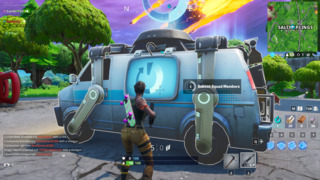
Exclusivity, either experienced individually or socially, isn't new to games. Every multiplayer match or raid is unique, and most online titles have limited-time events. What's exceptional about Fortnite is its ability to unify players, even with an emphasis on exclusive experiences: to include as it excludes. In most games, you can zoom in on any one player at any one time and find them in a different state than most other players. Users can progress through a lot of varied areas, be playing at different power levels, be utilising different mechanics, or find themselves at disparate points in a story. Expanding those games only splits the player base as you're introducing more distinct states and handholds in the overall journey that the player can reach.
Fortnite may seem to follow suit by scattering its players across many different server instances; you're only hanging out with up to ninety-nine other fighters in a fandom of millions. But participants are unified across those universes because they all exist in identical environments with the same stats, powers, and access to items. And because Epic dumps everyone onto one map, when the state of the environment changes for one player, it changes for everyone. That glues the community together, with each user able to relate to everyone else's current experience with the setting, quests, and features. Fortnite was not the first shooter to have all matches take place on one map, but the developers were highly aware of how they could use a common space to create shared experiences.
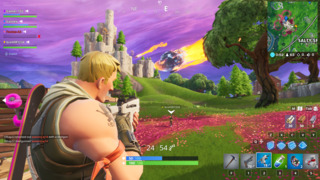
Just look at the Chapter One finale event. In it, missiles streaked through the sky, slamming into the ground, exploding in fiery plumes. A black hole opened up in the heavens and swallowed all the characters on the server. When players attempted to log in during the following two days, they found only a singularity where Fortnite's trademark island once sat. It's one of the shrewdest decisions Epic ever made. The corporation could have covered the server maintenance gap between the seasons with a boring, utilitarian message about downtime. Instead, it turned that maintenance period into a dramatic apocalypse and rebirth that everyone involved discussed and remembered.
I wouldn't be the first one to compare Fortnite's Chapter One armageddon to a spectacular MMO shutdown like Tabula Rasa's or The Matrix Online's. But think about what that comparison says. The funerals for those RPGs were moving and inventive. However, they also represented an extraordinary loss for their respective communities and made the gaming space that bit smaller. Epic is potentially doing the same with every new chapter and season they bring to Fortnite. Of course, the studios behind Tabula Rasa and The Matrix Online were likely powerless to stop their shutoff: their products didn't have the player base to sustain them financially. Epic does have a choice whether or not it bins its old worlds, and it still does it.
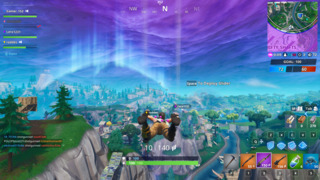
The routine lesioning of Fortnite is a threat not just to anyone who likes those older versions but also to the preservation of the medium. Love or hate Fortnite, it's a part of the history of games, and it has a high cultural relevance internationally. However, at this point, most of it is already lost. It is empty pedestals in a museum. When people have expressed concerns about our ability to archive video games for the future, they've often been met with the response that we have emulators and ROMs, so we don't need to worry about it. There are plenty of comebacks for that response, but one of the most cutting is that in an age of rolling updates, we see all sorts of games that cannot be represented by a single executable or ROM. Software undergoes many revisions; there has not been one Fortnite but many Fortnites, each worthy of taking a permanent copy of.
That intersects with the issue that the more games that require data from an online server to run, and the larger the portion of those games that exists server-side, the flakier our historical record of video games is likely to be. If you're asking developers to recreate those server-reliant titles, you're requesting that they rebuild the work of enormous well-funded tech companies with threadbare resources. Fan projects may also be snipeddown by corporate lawyers. This is not a basis for the preservation of a medium, and the former Fortnite chapters are the exact kind of content that the current industry has already watched burn.
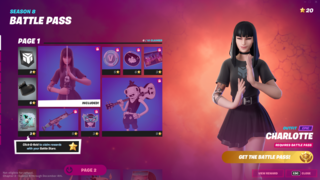
Epic has found a method to apply the principle of artificial scarcity to a live service model. Traditionally, the way we think of scarcity is that low supply and high demand increase prices, and that's the end of it. If there aren't many PlayStation 5s (and believe me, there aren't many PlayStation 5s), then scalpers can charge more for the few that remain because there is such a large market for them. Therefore, it would seem that the dynamic of supply and demand doesn't apply to most of the content that constitutes Fortnite. Fortnite isn't making you pay for its maps, limited-time features, or cutscenes, so price doesn't directly come into them. It's also true that no component of Fortnite, paid or otherwise, is produced in limited supply. From the studio's perspective, battle passes, cosmetics, and matches of Fortnite are unlimited, which is more than you can say for physical commodities. But there's more to the business of F2P than that:
1. Making a profitable product isn't just about driving up prices; there are a lot of other factors involved. The investors behind games want them to be trendy, drum up plenty of exciting word of mouth, and maximise engagement. None of that directly drives earnings, but it does indirectly drive them. The larger the influx of people into your game, and the greater the emotional investment of the users, the more people are likely to spend money on it.
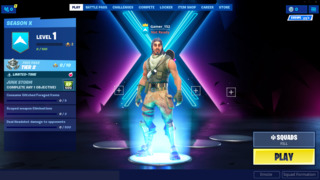
Epic fulfils its financial goals partly by enticing players to rush into its game due to fear of missing out on perishable content. If you don't play the current map iteration now, you're never going to. If you don't throw in with your friends and compete in the active season, maybe you're losing the chance for a unique bonding experience with them. That scarcity also drives sentimental, and thus, economic value. It further gets a lot of people talking about new events in the game simultaneously, publicising it, which loops back to push purchases indirectly. In Fortnite, we attach ourselves to a cultural rallying point that is continually eroded, and in the end, replaced because that's what the business plan demands.
2. We need to take into account that scarcity is not just about the quantity of a product available but also our access to it. Matches on one Fortnite map might be hypothetically infinite, and so may be chances to unlock battle pass rewards. But there's a timer on how long we can tap into any one set of content: opportunities to access that content, and to buy time-sensitive cosmetics, are scarce. And crucially, the scarcity of chances to unlock rewards motivates purchases of battle pass levels.
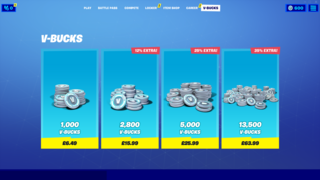
Remember, you must "level up" your battle pass to gain the rewards from it, and any baubles you don't unlock from it before the season ends, you're no longer eligible for. However, Epic sell boosts of one level for ~£1 a pop.[1] You're only going to have so much time on your hands to progress through the levels, so chances to level up are scarce for anyone not constantly chipping away at Fortnite. The scarcity of opportunities to level up explains how Epic can sell levels for such a sizeable cost.
___
The developer is able to maintain a hold over the supply of its goods that most companies could only dream of because it doesn't just control the manufacture of them, but the entire virtual space within which those goods exist. A white goods company could encourage customers to give them their money by releasing an appealing new fridge. Additionally, they could discontinue distributing older models of that fridge, making them harder for consumers to find. What they couldn't do is just wipe out or modify everyone's fridge worldwide immediately. But Epic can do that with the content of Fortnite. Any game developer can do that with any online game they administer. So, when Epic brings out a new model of Fortnite, it doesn't just encourage people to consume their new product; it forces them to do so if they want any version of that commodity. It's Epic's way or the highway.
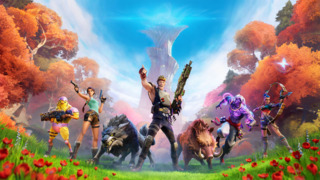
One of the more unusual consequences of Epic's universal jurisdiction over the contents of Fortnite is that they can effectively set fashion trends. There is a fashion component to Fortnite: new seasons bring new skins. By setting a theme for a season, Epic has a very heavy hand in deciding what's in fashion. If the season is Marvel-themed, the Marvel skins will be popular. If the season's theme is "primal", then you're going to look more in-vogue with a Beast Boy or Aloy avatar.
As a video game, Fortnite also pins clothing, accessories, and even certain bodies to specific in-game achievements. If there is a skin that you unlock only at Level 90 on the current battle pass, players with that skin will enjoy a certain social status that the new Nikes or a Gucci dress might convey in the physical world. But as in any other fashion scene, the lustre of your Fortnite outfits only lasts for so long. If the avatar you unlock around Level 90 is always changing, every season brings a new fashion: A new reason to spend on cosmetics beyond "I like how that looks".
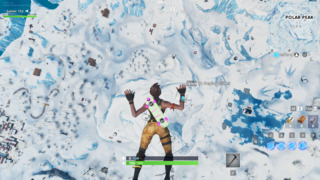
People often underestimate how much meaning scarcity can bring to a video game. However, it's also possible for a developer to make the uniqueness of locations, mechanics, or game modes come at the cost of archiving what matters. From the standpoint of preservation, video games have always been somewhat endangered, but Fortnite displays a disturbing new dimension to the threat. Not only is it not profitable for many companies to preserve game versions, it's often lucrative for them to destroy those that already exist. Thanks for reading.
Notes
- The cheapest purchase of V-Bucks you can currently make is 1,000 for £6.49. By dividing 6.49 by 1,000, we get the rough value of 1 V-Buck: 0.00649. Epic sells one level for 150 V-Bucks. 0.00649 x 150 = 0.9735. So, there is a roughly 1-to-1 conversion of pound sterling for Fortnite levels.
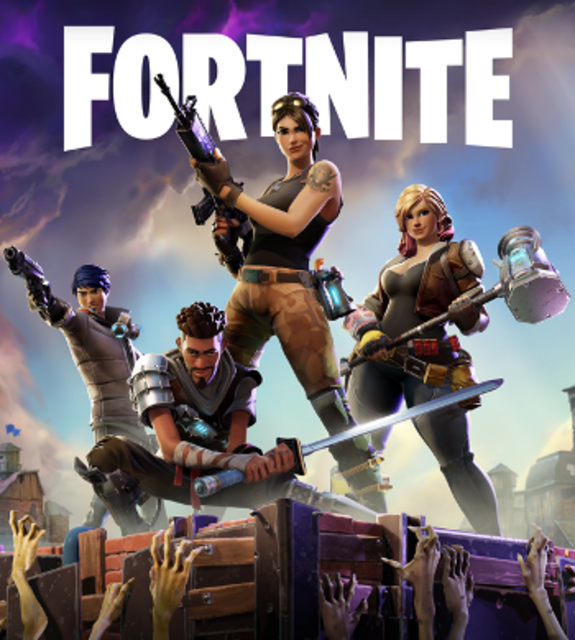
Log in to comment